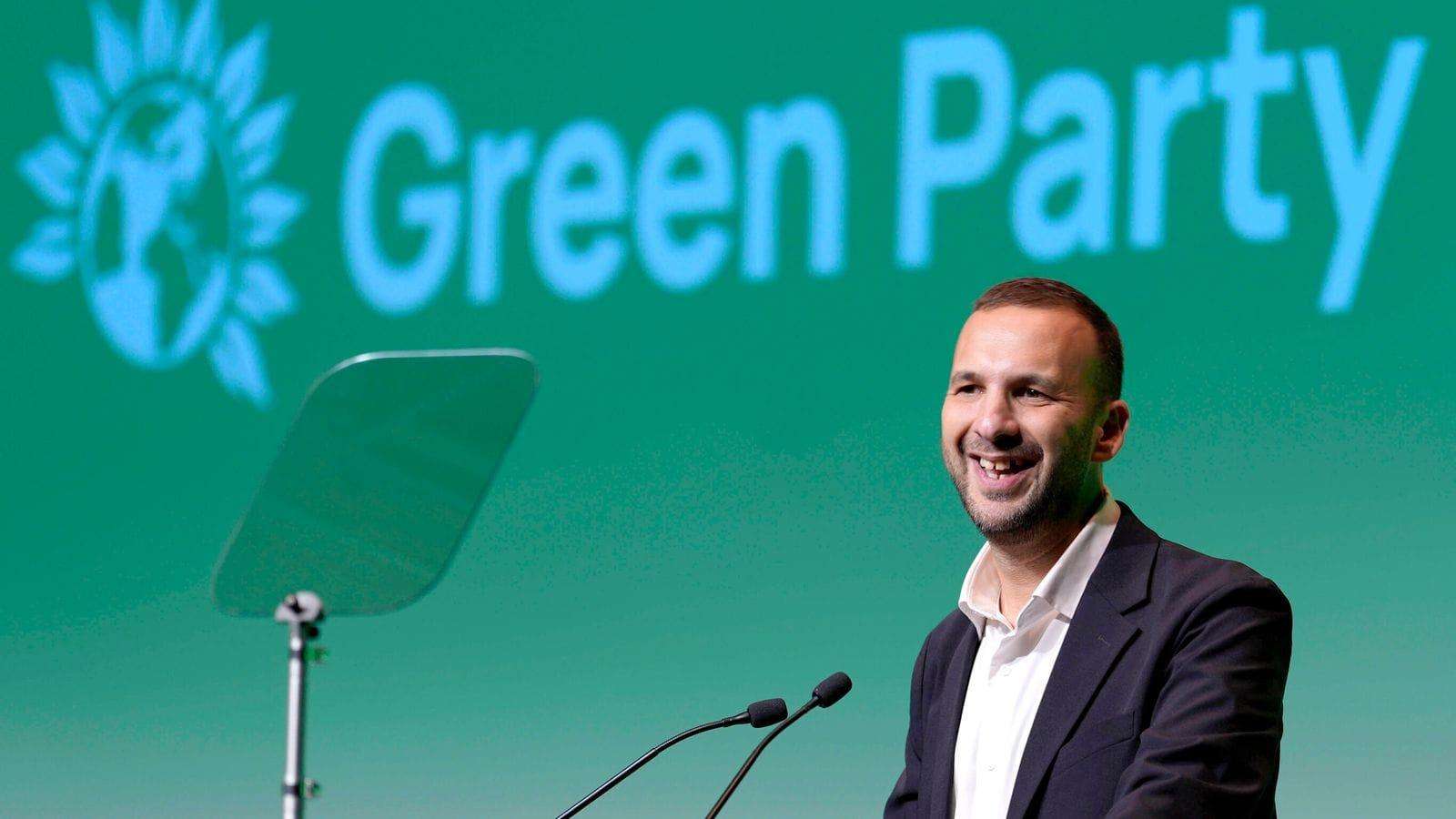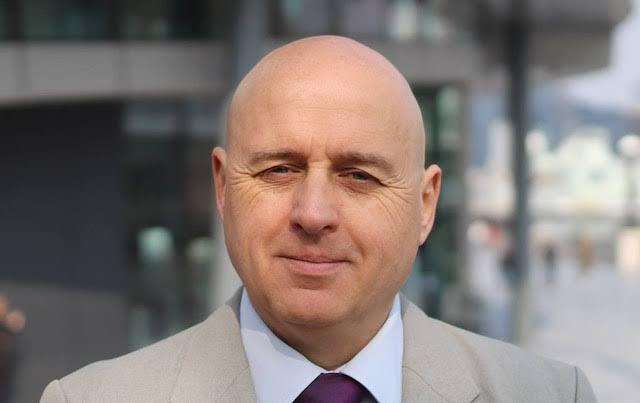
According to new data, households with high earnings are most at danger of becoming deeply indebted.
According to research by wealth platform Hargreaves Lansdown, households with a combined income of £60,000 or more are most at danger of struggling as interest rates rise since they frequently take on a larger level of mortgage debt as a proportion of their income. Many people making this much money have gotten mortgages worth £300,000 or more.
Variable and new fixed-rate arrangements are being increased as a result of the recent increase in the Bank of England base rate to 5%. The base rate was only 0.1 percent a few years ago.
You would have previously paid £1,272 a month with a 25-year mortgage on borrowings of £300,000 at a 2% interest rate. The monthly payments for the identical loan at 6% are £1,933, or £661 more per month.
On a house valued £295,000, the average mortgage debt is roughly £175,000; however, many people borrow more to purchase larger family homes. With the average salary of £32,000, it doesn't take much for a household with two working members to enter the higher income range.
As many as one in four households are now sinking under a mountain of debt because they are spending more than they earn.
Sarah Coles, head of personal finance at investment platform Hargreaves Lansdown, says: 'Finances are on a knife edge – with horrendous hikes in mortgage rates bringing alarming risks that hit wealthier borrowers in particular. It is vital to take action now before matters get even worse to avoid sleepwalking into an unaffordable debt disaster.'
Using research compiled with help from data researcher Oxford Economics, the wealth platform found that up to a million borrowers now have unsustainable lifestyles and spend more than they earn.
The research found higher earners are particularly at risk because they take on higher levels of debt to pay for properties, with a third failing to control their spending.
The average household spends 25 percent of their income on paying off the mortgage – but for wealthier individuals this is closer to a third.
The research also found that over the next 12 months, 26 percent of mortgage holders would be at risk of falling into arrears – more than double the pre-pandemic level. Coles says: 'High earners fly closer to the wind on debt – they don't just borrow more than lower earners but as a percentage of income as well.
'Only about a tenth of top earners are considered resilient when it comes to paying off debt when there is a rate rise, as we have now.'
Of course, it is not just the wealthy facing a financial crisis – with lower income households surviving on £20,000 or less struggling to pay for even basic groceries. Low earners spend a fifth of their income on food – while the wealthiest put aside only about 5 percent for groceries.
 According to new data, households with high earnings are most at danger of becoming deeply indebted.
According to research by wealth platform Hargreaves Lansdown, households with a combined income of £60,000 or more are most at danger of struggling as interest rates rise since they frequently take on a larger level of mortgage debt as a proportion of their income. Many people making this much money have gotten mortgages worth £300,000 or more.
Variable and new fixed-rate arrangements are being increased as a result of the recent increase in the Bank of England base rate to 5%. The base rate was only 0.1 percent a few years ago.
You would have previously paid £1,272 a month with a 25-year mortgage on borrowings of £300,000 at a 2% interest rate. The monthly payments for the identical loan at 6% are £1,933, or £661 more per month.
On a house valued £295,000, the average mortgage debt is roughly £175,000; however, many people borrow more to purchase larger family homes. With the average salary of £32,000, it doesn't take much for a household with two working members to enter the higher income range.
As many as one in four households are now sinking under a mountain of debt because they are spending more than they earn.
Sarah Coles, head of personal finance at investment platform Hargreaves Lansdown, says: 'Finances are on a knife edge – with horrendous hikes in mortgage rates bringing alarming risks that hit wealthier borrowers in particular. It is vital to take action now before matters get even worse to avoid sleepwalking into an unaffordable debt disaster.'
Using research compiled with help from data researcher Oxford Economics, the wealth platform found that up to a million borrowers now have unsustainable lifestyles and spend more than they earn.
The research found higher earners are particularly at risk because they take on higher levels of debt to pay for properties, with a third failing to control their spending.
The average household spends 25 percent of their income on paying off the mortgage – but for wealthier individuals this is closer to a third.
The research also found that over the next 12 months, 26 percent of mortgage holders would be at risk of falling into arrears – more than double the pre-pandemic level. Coles says: 'High earners fly closer to the wind on debt – they don't just borrow more than lower earners but as a percentage of income as well.
'Only about a tenth of top earners are considered resilient when it comes to paying off debt when there is a rate rise, as we have now.'
Of course, it is not just the wealthy facing a financial crisis – with lower income households surviving on £20,000 or less struggling to pay for even basic groceries. Low earners spend a fifth of their income on food – while the wealthiest put aside only about 5 percent for groceries.
According to new data, households with high earnings are most at danger of becoming deeply indebted.
According to research by wealth platform Hargreaves Lansdown, households with a combined income of £60,000 or more are most at danger of struggling as interest rates rise since they frequently take on a larger level of mortgage debt as a proportion of their income. Many people making this much money have gotten mortgages worth £300,000 or more.
Variable and new fixed-rate arrangements are being increased as a result of the recent increase in the Bank of England base rate to 5%. The base rate was only 0.1 percent a few years ago.
You would have previously paid £1,272 a month with a 25-year mortgage on borrowings of £300,000 at a 2% interest rate. The monthly payments for the identical loan at 6% are £1,933, or £661 more per month.
On a house valued £295,000, the average mortgage debt is roughly £175,000; however, many people borrow more to purchase larger family homes. With the average salary of £32,000, it doesn't take much for a household with two working members to enter the higher income range.
As many as one in four households are now sinking under a mountain of debt because they are spending more than they earn.
Sarah Coles, head of personal finance at investment platform Hargreaves Lansdown, says: 'Finances are on a knife edge – with horrendous hikes in mortgage rates bringing alarming risks that hit wealthier borrowers in particular. It is vital to take action now before matters get even worse to avoid sleepwalking into an unaffordable debt disaster.'
Using research compiled with help from data researcher Oxford Economics, the wealth platform found that up to a million borrowers now have unsustainable lifestyles and spend more than they earn.
The research found higher earners are particularly at risk because they take on higher levels of debt to pay for properties, with a third failing to control their spending.
The average household spends 25 percent of their income on paying off the mortgage – but for wealthier individuals this is closer to a third.
The research also found that over the next 12 months, 26 percent of mortgage holders would be at risk of falling into arrears – more than double the pre-pandemic level. Coles says: 'High earners fly closer to the wind on debt – they don't just borrow more than lower earners but as a percentage of income as well.
'Only about a tenth of top earners are considered resilient when it comes to paying off debt when there is a rate rise, as we have now.'
Of course, it is not just the wealthy facing a financial crisis – with lower income households surviving on £20,000 or less struggling to pay for even basic groceries. Low earners spend a fifth of their income on food – while the wealthiest put aside only about 5 percent for groceries.
_3.jpg)
_4.jpg)





.svg)
